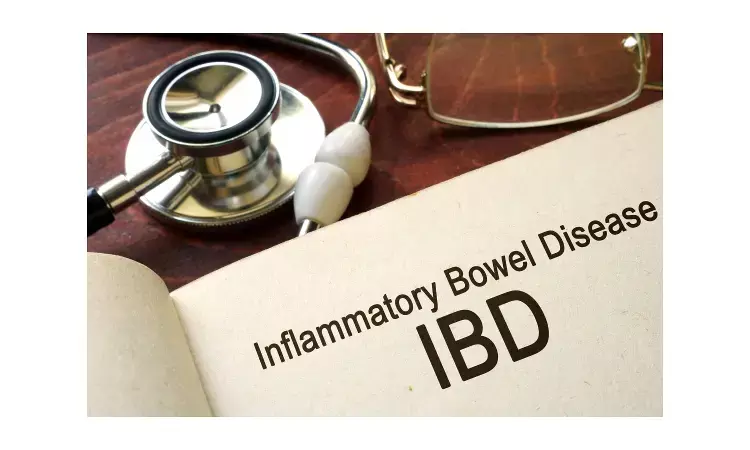- Home
- Medical news & Guidelines
- Anesthesiology
- Cardiology and CTVS
- Critical Care
- Dentistry
- Dermatology
- Diabetes and Endocrinology
- ENT
- Gastroenterology
- Medicine
- Nephrology
- Neurology
- Obstretics-Gynaecology
- Oncology
- Ophthalmology
- Orthopaedics
- Pediatrics-Neonatology
- Psychiatry
- Pulmonology
- Radiology
- Surgery
- Urology
- Laboratory Medicine
- Diet
- Nursing
- Paramedical
- Physiotherapy
- Health news
- Fact Check
- Bone Health Fact Check
- Brain Health Fact Check
- Cancer Related Fact Check
- Child Care Fact Check
- Dental and oral health fact check
- Diabetes and metabolic health fact check
- Diet and Nutrition Fact Check
- Eye and ENT Care Fact Check
- Fitness fact check
- Gut health fact check
- Heart health fact check
- Kidney health fact check
- Medical education fact check
- Men's health fact check
- Respiratory fact check
- Skin and hair care fact check
- Vaccine and Immunization fact check
- Women's health fact check
- AYUSH
- State News
- Andaman and Nicobar Islands
- Andhra Pradesh
- Arunachal Pradesh
- Assam
- Bihar
- Chandigarh
- Chattisgarh
- Dadra and Nagar Haveli
- Daman and Diu
- Delhi
- Goa
- Gujarat
- Haryana
- Himachal Pradesh
- Jammu & Kashmir
- Jharkhand
- Karnataka
- Kerala
- Ladakh
- Lakshadweep
- Madhya Pradesh
- Maharashtra
- Manipur
- Meghalaya
- Mizoram
- Nagaland
- Odisha
- Puducherry
- Punjab
- Rajasthan
- Sikkim
- Tamil Nadu
- Telangana
- Tripura
- Uttar Pradesh
- Uttrakhand
- West Bengal
- Medical Education
- Industry
Biologics may lower risk of advanced-stage IBD-associated intestinal cancer

A recent nationwide study in The American Journal of Gastroenterology by Dr Ryo Seishima, M.D., Ph.D and team reports that biologic use linked with a lower risk of advanced Inflammatory Bowel Disease (IBD)-associated cancer in ulcerative colitis (UC) patients but not in Crohn's disease (CD) patients.
Over the last decade, biologics have gained an important place for the treatment of moderate to severe inflammatory bowel disease (IBD). Biologics are powerful drugs that are popularly known to slow or stop inflammation that can damage joints and organs in arthritis and other inflammatory diseases.
Current study evaluated the effect of biologics on the risk of advanced-stage IBD-associated intestinal cancer from a nationwide multicentre dataset. The medical records of CD and UC patients diagnosed with IBD-associated intestinal neoplasia (dysplasia or cancer) from 1983 to 2020 were included in this study. Therapeutic agents were classified into three types: biologics, 5-aminosalicylic acid (5-ASA), and immunomodulators (IMs). The pathological cancer stage was compared based on the drug used in both CD and UC patients.
The key findings of the study are
• A total of 1,042 patients (214 CD and 828 UC patients) were included. None of the drugs were significantly associated with cancer stage in the CD patients.
• In the UC patients, an advanced cancer stage was significantly associated with less use of biologics (early stage: 7.7% vs. advanced stage: 2.0%, P < 0.001), 5-ASA and IMs.
• Biologic use was associated with a lower incidence of advanced-stage cancer in patients diagnosed by regular surveillance (biologics [-] 24.5% vs. [+] 9.1%, P = 0.043), but this was not the case for the other drugs.
• Multivariate analysis showed that biologic use was significantly associated with a lower risk of advanced stage disease (odds ratio = 0.111 [95% CI, 0.034–0.356], P < 0.001).
Dr Ryo Seishima and team concluded that "Biologic use was associated with a lower risk of advanced IBD-associated cancer in UC patients but not in CD patients. The mechanism of cancer progression between UC and CD may be different and needs to be further investigated."
Reference: Seishima, Ryo M.D., Ph.D.; Okabayashi, Koji M.D.,a; Ikeuchi, Hiroki M.D., Ph.D.; Uchino, Motoi M.D., Ph.D.; Futami, Kitaro M.D., Ph.D.; Noguchi, Tatsuki M.D., Ph.D.; Ohge, Hiroki M.D., Ph.D.; Iseki, Yasuihito M.D., Ph.D. et al. "The effect of biologics on the risk of advanced-stage IBD-associated intestinal cancer: A nationwide study." The American Journal of Gastroenterology ; DOI: 10.14309/ajg.0000000000002149.
MSc. Neuroscience
Niveditha Subramani a MSc. Neuroscience (Faculty of Medicine) graduate from University of Madras, Chennai. Ambitious in Neuro research having worked in motor diseases and neuron apoptosis is interested in more of new upcoming research and their advancement in field of medicine. She has an engrossed skill towards writing and her roles at Medical dialogue include Sr. Content writer. Her news covers new discoveries and updates in field of medicine. She can be reached at editorial@medicaldialogues.in
Dr Kamal Kant Kohli-MBBS, DTCD- a chest specialist with more than 30 years of practice and a flair for writing clinical articles, Dr Kamal Kant Kohli joined Medical Dialogues as a Chief Editor of Medical News. Besides writing articles, as an editor, he proofreads and verifies all the medical content published on Medical Dialogues including those coming from journals, studies,medical conferences,guidelines etc. Email: drkohli@medicaldialogues.in. Contact no. 011-43720751


